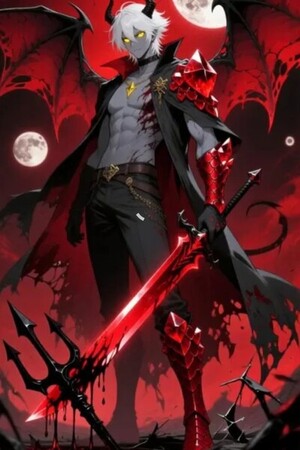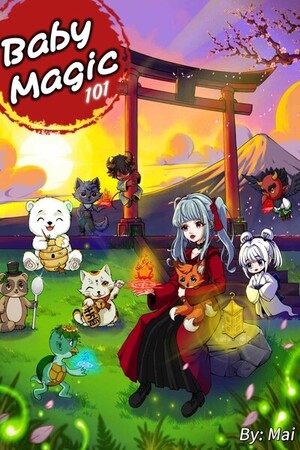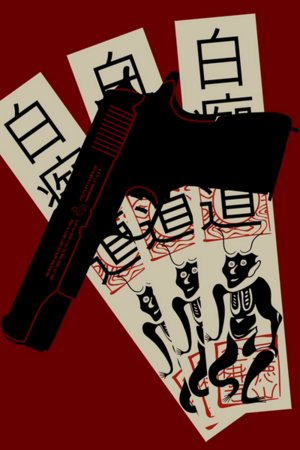Chapter 0:
Chapter 0 - The song of ruins
The flower that cannot bloom
“Live on.” Her note read.
At first, it irritated me. For a note, it was too short. I had expected it to be longer, more personal, and maybe an endless list of do’s and don'ts. Another detail was the terrible handwriting – messy, unreadable, and childish. As usual, her haphazard spacing and the confusing style with which she helplessly smashed the letter 'v' onto ‘e’. The choice of her ink – the flowery, sweet fragrance, and the golden color with which she inscribed the message. All of it was familiar to me.
If someone else had discovered it, they might have argued and dubbed it as a child's work. That is how it appeared to the eyes, but the truth was far from it. A woman, no, a beautiful woman in her late 20s had penned this. Her message—short and mere two words, had reached me against all the obscurities. To me, that was the greatest of feelings.
Throughout our lives, we chase, curl around, and protect little flashes in life - moments we think we will remember forever– only to watch them slip through our fingers like sand. Time doesn’t knock when it takes something, it just robs the warmth of the present and leaves silently. It is then that we understand the value of what mattered.
Some memories glow with quiet warmth, like embers that refuse to die, while others are blurry and sharp in places, like broken glass, you barely remember stepping on, lost in the abyss of heart. My childhood was one of those distant moments, a blur of forgotten faces and amnesia, but somewhere deep within me, despite the haze, a shard of happiness remains. It’s not the details which haunt me, but the feeling – a strange, fluttering sense of joy that has survived, still clinging to the edges of my old self.
...
“Gurit,” a familiar voice called. The laid-back voice took me by surprise, as I deftly yet hurriedly hid the letter. The letter weighed heavy in my pockets, a tangled web of emotions crept up on me.
What was that I felt at that moment? The frustration, the fear and the dread, as if some stranger entered my beautiful sanctuary. I could not verbalize it.
“Ludwig, so, are we leaving?” I called out, my eyes distant and unfocused. I tried to sound casual, but my voice shook with barely suppressed anxiety.
“Yeah, we are. The boss is angry. I got a handful of his lectures since we were supposed to guard the carriage together. What a pain in the ass, you mongrel!” He grumbled nonchalantly.
“Anyway, let’s head back,” he said, his hand motioning me to follow.
I followed him in silence as he led the way back to the carriage. An eerie stillness pressed down on us, heavy and unrelenting, like a ghost refusing to leave. This silence wasn’t new; it had always accompanied us.
…
Dusty and dry streets stretched out before us, silent as if they had long forgotten the sound of footsteps. The wind, dry and restless, whispered through remnants of shattered buildings, carrying with it whispers of the past. This place, which once may have been a city, now lay in ruin, half-consumed by the sand of the desert - a corpse of a city. It wasn’t just abandoned; it was stripped of its identity, left to decay under an uncaring sky. Walking through them, I felt their grief in my heart; each broken building bore the scars of broken dreams and abandoned aspirations that still lingered like phantoms in this skeleton of a city.
We had stopped here briefly during our long journey south — just long enough to rest the nightshades and to check upon our supplies. And when the others busied themselves with other tasks, I had slipped away unnoticed. I had not planned to; it was as if the ruins themselves were beckoning me, as if invisible threads had pulled my soul, compelling me to wander these forsaken streets.
As we pushed deeper into the abandoned city, my leather boots kicked up small clouds of dust that hadn’t moved for centuries. My head buzzed with questions that crashed against the shores of my mind. What fate had befallen this place? Was it war that reduced these ornate structures to crumbling ruins, or was it a disease? The absence of life had created a vacuum that nature herself seemed to fill, leaving behind an eerie silence, that though empty felt wrong.
The wind picked up suddenly, carrying with it the earthy tang of stone that had been weathered over time, sharp like old minerals that had been baked in the sun with a bitter edge that hinted at decay. I stopped beside what must have been a great fountain, now a basin filled with sand instead of water. As I ran my fingers along its ornate edge, the stone’s coarse surface – weathered and scarred – felt like it had been waiting there forever, just watching the sky.
As I stood amidst the hollow bones of a civilization, suddenly, without warning, a wave of melancholy crashed over me - not gentle like waves on the shore, but violent and consuming like a tsunami. I felt something settled inside me. It was heavy and strange. A numbing ache– unplaceable, yet somehow familiar. Maybe it was grief — the kind that creeps in when your soul remembers something your mind denies.
No. It was nothing so simple. An echo curled tightly at the base of my skull. A song drifted into my memory with a delicacy of petals falling onto still water.
I heard it once during travels with my master. A jester had sung it - a woman, but not just any woman. An elf. One of the old ones, ancient in the way only their kind could be. I remembered her as if she was carved into the back of my eyelids. Her face bore the grace of one who had witnessed empires rise and crumble to dust. Her hair, silver as moonlight, while she had the kind of face you wanted to stare at and look away from, all at once. But most of all, I remembered her harp – an instrument of such breathtaking beauty, its intricate design transcended human artistry, as though the Devis of swarga had gifted it to her themselves.
What had she called it?
Ah yes. ‘Der Fall von Rosmarie’, or in the common language, ‘The fall of Rosmarie’.
Despite never having a particular fondness for music, nor possessing the refined ear of a connoisseur, I remember that night as vividly as I remember my own name. That night when the elf sang. I was not alone in being unprepared for what followed — none of us were. One might expect a performance, a simple recital at most. But what we witnessed…it transcended melody. It became something else.
There is an old belief, whispered among scholars and dreamers alike, of a fifth magick — one superseding the logicas. Said to be magick equivalent to the soul. Yet that night, I felt it. Perhaps it was foolish sentiment, the kind that hopeless romantics indulge in, but for a moment that defied time- I believed it.
Time paused, as though reality bent in deference to her voice. The stars above blinked slowly, as if they too were listening. Everything in the vast emptiness of the world gathered in that fragile moment, drawn to the center of song like moths to a forgotten flame.
There was a grief in her voice, yes — but also love and regret. That kind of love that digs its nails into death’s throat and refuses to yield, that clings to bones of forgotten cities and hums through them, when the last throat has forgotten to scream. Her harp wept under her touch, carrying the weight of stories too old to tell, fading into the silence like a whispered farewell.
And the song —
It was a tragic song. A lament woven from sorrow and agony of war, a melody that seemed to bleed through the soul and leave it aching. It spoke of Rosmarie — a mystical land said to be the home of the vampire king and his beloved, Rosemary. It was a tale of conquest. The brutal battles that ravaged the kingdom, defiled its eternal majesty, and spilled its rivers into the throats of the barbarians. What was once a kingdom of moonlit spires, now rotted upright, turned into a skeleton, picked clean by crows and time.
….
“The skies where shadows mourn,
Rosemarie’s grace was ripped and torn.
The mleccha’s wrath, his bloodstained hand
Turned beauty’s grace into barren sand.”
And as we walked amidst the rubble that still seemed to dream of being a place, staring at remnants of its former glory. A verse from the song escaped my lips, soft and low. Reflexively, my eyes wandered over the ruins around me. Something about them felt similar, as if I had seen them before. Too much like song’s nightmares. The tall structures, which once stood tall and grand, now stood broken, their spines snapped and bent beneath the unyielding weight of time. The wind howled through their hollowed frames like a mourner, singing its own lament.
What must have once been a lush and fertile land had long since surrendered to desert’s embrace. The ground was cracked and lifeless, its glorious memory forgotten by time, under layers of fine, sun-bleached sand.
It was as if I was in Rosmarie. The fabled city whispered of in myths and songs, the one said to have fallen to war and barbarism. A strange coincidence? Or perhaps fate, cruel and poetic, like mournful cries of dying phoenix.
Soon, our silent steps led us to what looked like the outer gate- a colossal structure, wood and iron both, crackled and faded by centuries and half-swallowed by ever expanding dunes. It loomed above us like a slumbering titan, its frame blackened and broken, yet still standing - defiant, like the final guardian of a forgotten kingdom.
Beside the gate, half buried beneath the drifted sands, lay a fractured signboard. Seeing it, I stopped. Ludwig, who until now had been walking in silence paused as well. He turned to me, wondering for a second and then knelt as he reached towards the board, brushing away the grains. The wood groaned softly under his touch, as though exhaling one final breath.
And then, I saw it, etched in deep, weather-worn strokes, the message laid bare in a language everyone could understand.
“Rosemarie has fallen.”
A chill crept through me, despite the desert’s heat. The word struck with quiet finality, like the toll of a distant bell.
It was no longer a question, no longer a legend embroidered by poets.
This was Rosmarie.
…
“GURRRIT, I-I told you not to wanddderr off-f liike that!” the boss bellowed, his voice slicing through the desert air like a whip. His eyes —slitted and intense — locked onto mine, piercing through me like a blade. His thick draconian accent, which often twisted vowels and spat consonants, had confused me many times before. But now, it just made his anger worse.
I scratched the back of my neck, offering a sheepish grin. “Forgive me,” I said... “I was tired of sitting for so long.”
A sharp “Tch '' sound cracked from his lips. The man, who I called “Boss” — though his true name was Chaukkukoushka — was not one for excuses. Rumors said that he once commanded an entire legion of an army in the western wars. Whether they were true or not, he carried himself with the weight of someone who expects obedience, not explanations.
He gestured sharply with his one scaled hand, claws glinted as he barked at the others to prepare the carriage.
“DON'T DO IT AGAINN” he growled, tail swaying behind him like a loaded whip.
“You have my word,” I said, browning my head in half apology, half evasion, before swiftly turning to help the three.
….
The carriage we rode was primitive by most standards, a far cry from advanced alchemy powered machines of the East. Ours was mechanical in the crudest sense, wheels of creaking wood and rusted iron, wrapped in canvas worn thin by countless journeys. It was pulled forward by the brute strength of the Diplodocus.
The beast was slow but perfect for the harsh terrain of the southern wilds, nothing else could match its endurance. Meanwhile, Ludwig and I rode ahead and behind, the vanguard and the rearguard, mounted on our Nightshades- a quadruped creature, with a sleek black body and a long, flowing volent mane and tail. The others remained inside the carriage, the boss drove the carriage, and the two others guarded our supplies and spoils from inside.
Yet, as we readied to leave the ruins behind. A piece of me remained among crumbled stones and lost whispers. The memories of the place —of the song, of the silence —clung to me like fine dust in my lungs. The past day had passed like a dream soaked in grief and still clawed at me.
I reached into my coat and gripped the letter. Her letter. The parchment crackled softly beneath my fingers, its golden ink faintly gleaming in the light. Though small and cryptic, those two words — Live on— burned brighter than any sun. They gave me a strange power and quiet in a world so loud with ruin.
Above us, the sky brooded — a muted shade of gray, imbuing the air, with a cold, lifeless glow over the scorched land. Winds surged across the desert like an angry spirit, biting through cloth and skin. It was as though they resented the living — resented us, for surviving when so many others had turned to dust.
Those winds, they had seen it all. Kingdoms rise; cities fall. Blood spilled. Like a memoir of an age lost. And in their screeching song, if one listened long enough, they could almost hear the voices of the fallen, the betrayed, the forgotten.
But let the wind howl. Let the sands rage and shift. Let the past claw at me with all its mournful sorrow.
I will not stop.
Whatever lay ahead, may it be salvation or damnation. I had chosen.
I would live on.
…




Please sign in to leave a comment.